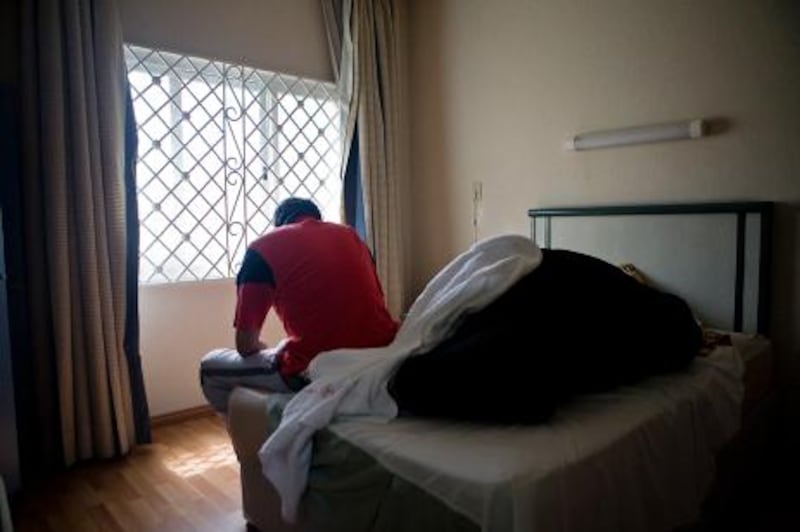ABU DHABI // Doctors at the country's only rehabilitation centre say they are seeing a steady growth in the number of patients, with the biggest problem being heroin addiction.
The case load at the National Rehabilitation Centre (NRC) is increasing by 20 to 30 per cent each year, according to Dr Ahmed Ali, the centre's medical director.
Last year alone the centre saw around 100 new patients, two-thirds of whom had drug problems. The others were alcoholics, Dr Ali said.
While those numbers are clear, the overall number of addicted people in the country is not so evident to experts.
Doctors at the centre said they know there is a gap between the number of people being treated and the number of drug users - but without further study they can have little idea how big that gap is.
Efforts are now under way to get a better picture of the scope of the problem, under a partnership announced in October among the United Nations Office for Drugs and Crime (UNODC), the World Health Organisation and the NRC.
Once authorities have a better idea of the scale of the problem, they will be able to work on ways to handle it.
In October, officials announced plans for a new 200-bed rehabilitation centre almost five times the size of the current one. Work will start in April, with the facility due to open in 2014.
Yury Fedotoc, the executive director at UNODC, said Afghanistan - a major heroin supplier - was the biggest source of drugs coming into the country.
Cocaine and marijuana also find their way in. "Cocaine is mostly used in Europe," he said, "but no one can prevent it from being used here.
Mr Fedotoc added: "We need a science-based, humane treatment" to give those fighting addiction "a fresh start in their life. This centre will increase in capacity and awareness and develop efficient and effective methods, in particular the Arab initiative to protect youth from drugs."
Dr Hisham Elarabi, the head of health education and research studies at the centre, said: "This programme will see to it that the centre becomes a hub for the region in treatment. It is not about the physical structure, but beefing up the services - how to maintain follow-up and social support. The ability to provide treatment will quadruple, at least."
Any new treatment methods will have to take cultural factors into account, though.
"Treating an alcohol addict in the UK would be very different to treating one here," said Dr Elarabi. "The … help will be different, but the philosophy will remain the same."
Plans are also being drawn up to improve drug education for 12 to 14-year-olds.






